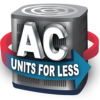As a homeowner, your HVAC system is one of the most crucial components of your home, responsible for keeping you comfortable through the seasons. Whether it's the sweltering heat of summer or the biting cold of winter, your HVAC system works tirelessly. However, there comes a time when it must be replaced. Before you decide to change your HVAC equipment, there are several key factors to consider to ensure that your investment is wise, efficient, and effective.
Understanding Your Needs
The first step is understanding your specific heating and cooling needs. The size of your home, the local climate, your home's insulation quality, and your personal comfort preferences all play a role in determining the type and size of the HVAC system you need. A system that's too large will cycle on and off more frequently, wasting energy and putting unnecessary wear on the equipment, while a system that's too small won't be able to maintain comfortable temperatures.
Energy Efficiency
With advancements in technology, newer HVAC models are far more energy-efficient than their older counterparts. Look for the SEER (Seasonal Energy Efficiency Ratio) rating for air conditioners and the AFUE (Annual Fuel Utilization Efficiency) rating for furnaces. The higher the SEER and AFUE ratings, the more efficient the unit. Although high-efficiency units can be more expensive upfront, they often lead to lower utility bills and can save you money in the long run.
Costs and Budgeting
Changing an HVAC system is a significant investment. Beyond the initial purchase price of the unit, consider installation costs and the potential need for upgrades to ductwork or electrical systems. It's essential to budget for the total cost of the replacement, including any incidental expenses that may arise during installation.
Professional Assessment
Before making any decisions, have a professional HVAC contractor assess your current system and home. They can provide recommendations based on a thorough evaluation of your existing equipment, ductwork, insulation, and vents. This assessment can help identify any issues that need to be addressed to ensure your new system operates efficiently.
Rebates and Incentives
Look into any available rebates, tax credits, or incentives for installing energy-efficient HVAC systems. Many governments and utility companies offer financial incentives to encourage homeowners to choose energy-efficient options, which can help offset the cost of a new system.
Maintenance and Warranties
Proper maintenance can extend the life of your HVAC system and ensure it runs efficiently. Understand the maintenance requirements for any new system you're considering. Additionally, check the warranty details, as they can vary widely among manufacturers and may include limitations or requirements for regular maintenance.
Environmental Considerations
The refrigerant used in air conditioning systems is changing due to environmental concerns. Older systems use R-22 refrigerant, which is being phased out due to its ozone-depleting properties. New systems use R-410A or similar refrigerants that are more environmentally friendly. Ensure your new system uses a current, approved refrigerant.
Smart Technology
Modern HVAC systems often come with smart technology options, such as programmable thermostats, which allow for better control over your home's climate and potential energy savings. Consider whether features like these align with your lifestyle and whether you'd like them included in your new system.
Contractor Selection
Choosing the right contractor is as crucial as selecting the equipment itself. Look for licensed, insured, and experienced professionals with solid references. A reputable contractor will offer a clear contract, a detailed estimate, and stand behind their work.
Permits and Regulations
Replacing an HVAC system often requires permits and must adhere to local building codes. A qualified contractor will be familiar with these requirements and should handle obtaining any necessary permits.
Changing your HVAC equipment is a significant decision with long-term implications for comfort and cost. By considering these factors and working with a trusted professional, you can ensure that your new HVAC system meets your needs and serves you well for years to come.


